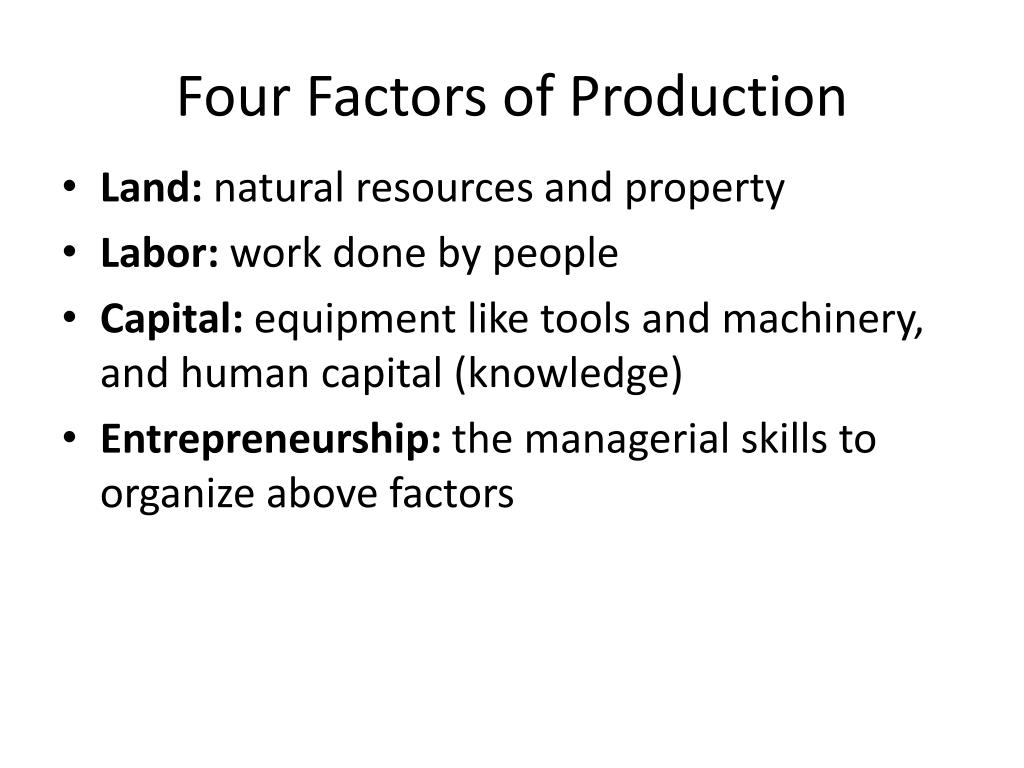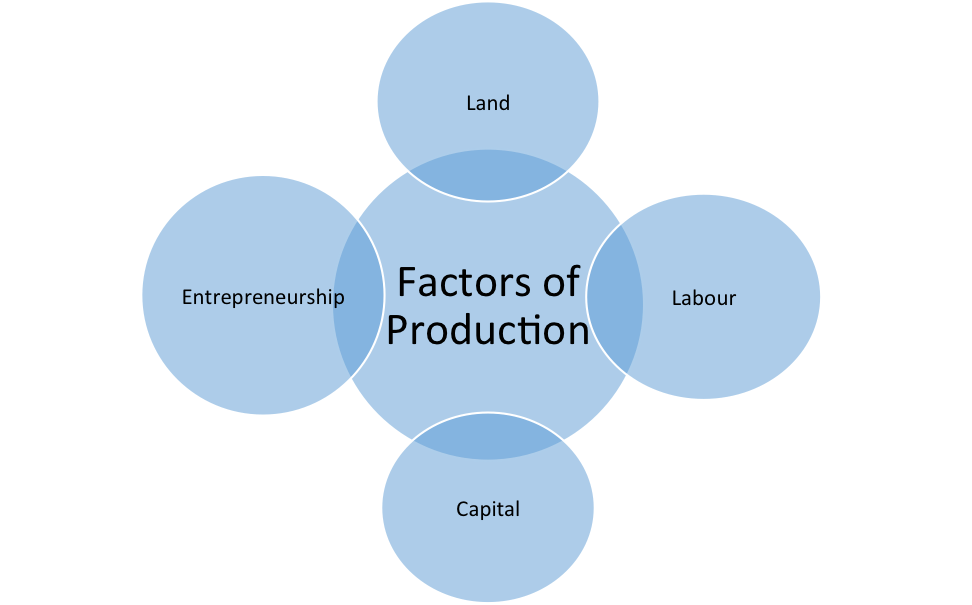

For example, an organization that makes its money through leasing buildings and office space may view land and capital as its most important assets. Production factors can vary in importance according to the context of a venture. The production process provides a way to ensure continuity and gives goods and services a place to develop. Related: 10 Key Entrepreneurial Skills You Need to Start a Business Importance of production factors For example, they may recruit more labour, acquire land, or assemble capital. Successful entrepreneurs may combine the first three factors of production to help advance their ventures. Entrepreneurs typically contribute their own capital, labour, and production capital to the startup of the company. Related: What Is the Unlevered Cost of Capital? (With Example) EntrepreneurshipĮntrepreneurship is a factor of production that refers to the initial investment and the initiatives that entrepreneurs take to start and grow their own business. Here are some additional examples of capital: Working capital refers to stocks of semi-finished goods that turn into finished consumer products, while fixed capital refers to the production of goods such as machinery, factories, and buildings. Capital production also includes sub-factors, such as fixed capital and working capital. Machinery, equipment, and chemicals used in manufacturing are examples of these objects.
#4 FACTORS OF PRODUCTION AND DEFINITIONS MANUAL#
Related: Manual Labour Jobs (With Salaries and Primary Duties) CapitalĪs a factor of production, capital refers to manufactured resources that are created by factories, machines, and humans. The value of the workforce depends on the skills, qualifications, and motivation of the employees. For example, labour production for a hotel may include construction workers at the hotel site, servers at the hotel's restaurant, and receptionists enrolling guests. Labour production is the effort spent on bringing a product or service to the market. Some additional examples of land production factors include: Similarly, farmland is a natural resource, but a shopping center is a capital good. For example, crude oil is a natural resource, but gasoline is a capital good.
/Circular-Flow-Model-3-590227d85f9b5810dc9ad23e.jpg)
When you change a natural resource from its original state, they're no longer a natural resource. It can supply non-renewable resources, such as oil and gold, or create renewable ones, such as timber.

Land is a natural resource that contains raw materials, such as soil. Here are explanations of each of the four production factors: Land The 4 factors of productionįactors of production are the elements that contribute to the production of goods and services. In this article, we explore each of the four factors of production, review their importance, examine economic systems, and answer frequently asked questions. Understanding how the four production factors affect a business can be a great asset when developing new business strategies or developing new products. Land, labour, capital, and entrepreneurship are the four production factors. A factor of production is the resource that a person uses to produce goods and services.


 0 kommentar(er)
0 kommentar(er)
